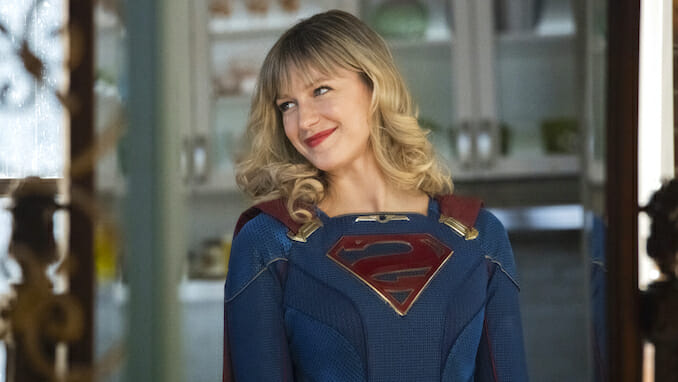The Legacy of Supergirl, and Why We Need Optimistic Superhero Stories More Than Ever
Photo Courtesy of The CW
Nowadays, superhero stories seem like they’re a dime a dozen. From speculative Marvel cartoons (What If…?) and feature film continuations (The Falcon and the Winter Soldier) to DC Comics classics (Superman and Lois), gritty dramas (Titans) and… well, whatever Doom Patrol technically is, costumed crime fighters have thoroughly broken into the mainstream entertainment world. Who could have guessed that when Arrow first launched on The CW way back in 2012 that virtually every TV and streaming network would be fighting to have some sort of superhero or comic book-style story on its air within the next decade? Truly, what a time to be alive.
But as new superhero series arrive, others depart. After six seasons, The CW’s Supergirl is hanging up its cape, concluding after a run of over 125 episodes and leaving behind a rather remarkable and groundbreaking legacy. The series made history as the first superhero show to feature a solo female lead and went on to break ground in other important areas of representation, from explicitly depicting its aliens as immigrants and refugees to featuring multiple prominent LGBT characters and relationships onscreen, as well as introducing Nicole Maines’ Dreamer as the DC TV franchise’s first transgender superhero.
It’s hard to imagine the comic book television landscape without the brightness that Supergirl has come to represent—both literally and figuratively—especially because there are so few series that are capable of stepping into the particular void it will leave behind.
Throughout its run, Supergirl has embraced the absolute best of what the superhero genre can be and do, offering the sort of bright, sunny tone and optimistic feel that too many series these days seem to view as twee or childish, as though it is the worldview of a brand of television whose moment has passed us by. Yes, Superman and Lois is out here doing its heartfelt best to tell the story of a good man rather than an all-powerful godlike being, and Legends of Tomorrow’s bonkers adventure plots explore complex emotional truths using everything from anthropomorphic children’s toys to James Taylor tracks.
But many (possibly most?) superhero programs on-air today are uncomfortably bleak. Dark and gritty isn’t just a thing found in prestige cable dramas anymore. These shows usually feature broody, tortured heroes looking for revenge or some ancillary form of redemption, who exist on canvases that are often so poorly lit you have to start wondering if all the literal darkness is some kind of clunky metaphor for the state of their souls.
Many of these new sorts of heroes openly resent that they have special abilities or a calling to help those in need, and the shows on which they star seek to subvert the traditional stories this genre was initially built to tell. Even a series like The Flash, ostensibly created by The CW as the light to Arrow’s darkness, has stumbled in recent years, losing much of the joy and fun that made its earliest seasons so special.
Not Supergirl, though.
Bright, sunny, and hopeful until the end, Supergirl is the sort of show that wears its heart—and frequently its politics—on its proverbial sleeve. Unafraid to tackle complex issues of prejudice, fear, and discrimination, the show succeeds by grounding its story in a core group of characters whose empathy, compassion, and forgiveness are as likely to save the day as Kara’s heat vision.
-

-

-

-

-

-

-

-

-

-

-

-

-

-

-

-

-

-

-

-

-

-

-

-

-

-

-

-

-

-

-

-

-

-

-

-

-

-

-

-








































